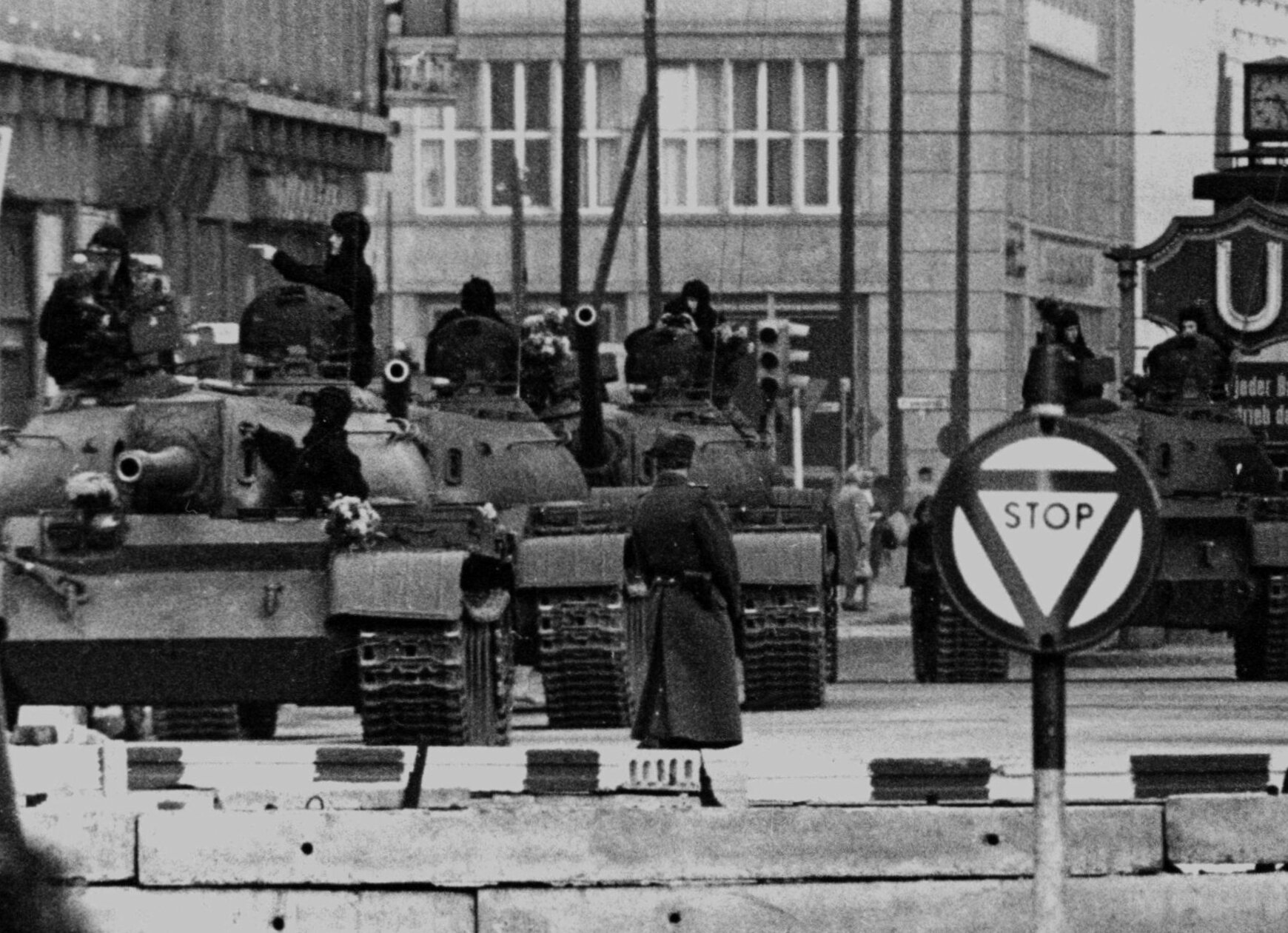Lessons are always learnt from different directions!
As the world came together this past weekend to celebrate the 30th anniversary of the fall of the Berlin Wall, there was understandable triumphalism in the air. Desperate not to miss such an opportunity, political leaders were falling over themselves to stand beside this memory, to cheerlead the victory of liberal democracy.
And quite right too! This was the dizzying end of the Cold War, the reunification of a long-divided Germany, and the public failure of the promise of totalitarianism. Yet as the concrete was being torn down all those years ago, the losing side was internalising a very different lesson. A new, evolved, despotic Russia, was being dreamt up in that very moment.
On the ground, in the thick of this upheaval, was a young KGB (the Soviet Union’s spy agency) officer who had spent the previous four years uneventfully running cables back to Moscow. This was the edge of the Soviet empire, the signs of the coming collapse were unambiguous, and then-Lieutenant Colonel, Vladimir Putin, expected more from his government.
The protests and discontent were there to be seen – as was a natural target for this anger. The Stasi – East German secret police – had run an elaborate surveillance system over the decades, stretching themselves into every inch of their citizens’ daily lives through a vast network of informants, and had formed a brotherly relationship with the KGB.
When the Berlin Wall came down in November 1989, the slow pace of history lurched forward. A few weeks later, on December 6th, those same crowds stormed the Stasi headquarters in Dresden – directly across the street from the KGB headquarters where Putin was hastily burning every document that would catch light.
The furnaces overflowing, Putin understood the more pressing challenge suddenly before him. At some point, when the crowd had grown bored of sifting through the Stasi offices, the KGB building would likely be next. Understandably worried about what might happen, Putin first called the local detachment of the Soviet military for support, and then went out to meet the protestors on the street.
Those protestors remember that “an officer emerged - quite small, agitated”, who went on to explain that he was just a minor cog in the Soviet system – claiming to only be a translator – but that the building was a military installation, and that Moscow would always defend it: “This is Soviet territory and you're standing on our border” – “don't try to force your way into this property. My comrades are armed, and they're authorised to use their weapons in an emergency”.
The crowd lost their nerve – and yet they had no reason to.
Putin’s phone call for military support was met with complete abandonment. The Red Army officer on the other end of the line replied that “we cannot do anything without orders from Moscow” and “Moscow is silent.”
It is hard to overstate what this moment did to the young intelligence officer. Driving back to Russia with his family and what was left from their life in East Germany, Putin discovered his own country in freefall, changing before his eyes – his hometown of Leningrad was even being renamed St Petersburg.
Unemployed, disillusioned, and angry, Putin first thought about becoming a taxi driver. But soon he was leaning on his old spy network – and the connections he had made in East Germany – to propel himself up what was suddenly a much shorter, and easier to climb, political hierarchy. Ten years after that low moment in Dresden, Putin became the President of Russia.
His personal history would become Russia’s neurosis. The fall of communism – and the fall of the Berlin Wall – was, in Putin’s own words, “inevitable”. But the retreat of the Soviet Union wasn’t. He believed that if those Red Army tanks had rolled down the streets of Dresden, and other cities like it – if aggression had been met by aggression – then it all could have been held.
There is no reason that a dictatorship can’t adapt to change – it is only when they ‘go silent’ that history runs over them. After becoming President that first time, Putin announced to his nation: “He who does not regret the break-up of the Soviet Union has no heart; he who wants to revive it in its previous form has no head.”
That ‘silence’ has forever haunted Putin, and the once unquestionable idea that Russia belongs at the table of great powers, bestriding the world, and dictating the fates of other countries. It is also from that ‘silence’ that things today begin to make a little more sense.
When crowds form on Russian streets, or when neighbouring countries dare to step away from the Russian orbit, they sound like echoes from a painful history. The fear comes back, as do the memories of weakness, of a once-great empire falling to its knees, and of the passive ‘silence’ that let it all happen.
For better or worse, Vladimir Putin is now likely to fight this to the end – and Moscow is now always likely to be a noisy neighbour.
